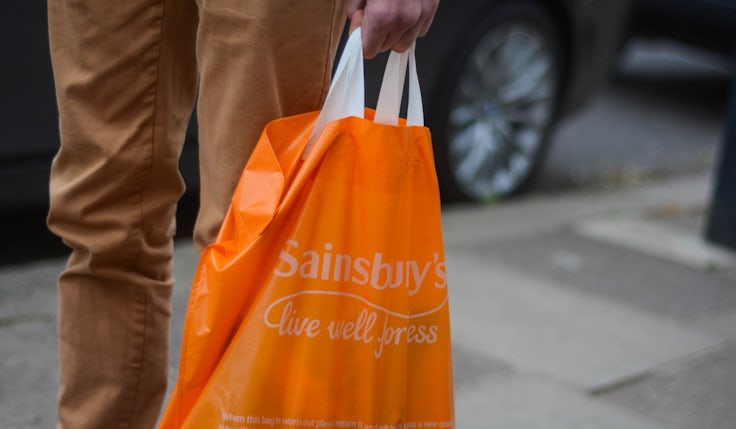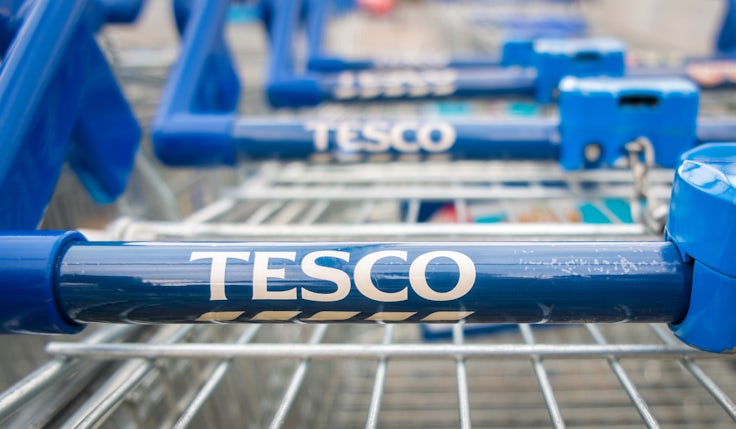Sainsbury’s: We want to be Britain’s favourite supermarket
The grocer is refocusing on its food business after a difficult few years following its failed merger with Asda and acquisition of Argos as it looks to improve perceptions of food and value, and boost appeal to customers.

Sainsbury’s new CEO Simon Roberts is refocusing the supermarket on its core food business as it sets the company the target of becoming “Britain’s favourite supermarket”.
Speaking on a press call this morning (5 November), Roberts admitted that it needs to adapt faster to changing customer shopping habits and simplify its business. It is putting the focus on improving quality and value, as well as increasing innovation and convenience.
“Our plan sets us up to deliver significant improvements in quality and value. We want to simplify the business, meaning we can do a better job for customers and shareholders,” he said. “By focusing on food, which is our absolute strength and where our heritage lies, we can and should be Britain’s favourite supermarket. And that is where I want us to get to.”
Roberts said he doesn’t think the reason Sainsbury’s isn’t currently the top supermarket is because it has “been going wrong” but that there has been a fundamental change in how people shop. He points to the shift in online over the past few months, with Sainsbury’s going from 350,000 online orders a week in March to a high of 736,000 last week.
He also admits Sainsbury’s has not been as keen as it could have been on price, meaning perceptions of the value it offers has slipped.
To rectify this, the supermarket has lowered the cost of 1,500 items and is improving quality, in particular through innovation where it wants to increase speed to market by 30% and triple new product launches.
We can and should be Britain’s favourite supermarket. And that is where I want us to get to.
Simon Roberts, Sainsbury’s
Convenience is also an area of priority, both in terms of online but also its convenience estate where it plans to double store openings.
“This is about accelerating many of the things we’ve been doing. We’ve begun a real focus on our food business, investing more in price, substantially shifting our online business. You shouldn’t underestimate the investments we’ve been making in recent years that have enabled us to double our online volume in the last six months,” added Roberts.
While Roberts believes there is work to be done on the Sainsbury’s brand, data from YouGov BrandIndex shows it is already quite strong. Its index score, a measure of metrics including satisfaction, quality and reputation, comes in at 33, putting it third behind just Marks & Spencer and Aldi on a list of supermarkets.
It performs less well on value, coming seventh with a score of 12.6 and behind all its big four rivals as well as Aldi, Lidl and Iceland. On quality it comes in third with a score of 45.3, behind Marks & Spencer and Waitrose.
As part of the changes, Sainsbury’s is also closing all its fresh food counters, a move that has some questioning if that meant it was doing downmarket. But Roberts shook off such accusations, saying the move was in response to customer behaviour, although admitting it saved money too.
“Absolutely not [taking Sainsbury’s down market]. We are focused on putting food back at the heart of our business and to do that we have had a good look at how customers are shopping for food today.
“The reality on the counters is they have been in long-term decline. We’ve seen sales drop year on year by at least 10% over recent years. And through the pandemic we’ve seen customers shopping for the vast majority of those products in-aisle,” he said.
Roberts also looked ahead to Christmas, predicting that while there are likely challenges ahead, people still want it to feel special. Like many retailers, Sainsbury’s is already seeing customers “planning and thinking ahead” with a “significant” uplift in food ordering and Christmas home products.
“Whatever size gathering we can have, we have to make sure we have the products customers want,” he said.







